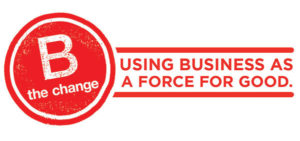It’s been many years since I was a student getting my master’s degree in business administration, but I remember clearly the maxim that rang throughout almost every course: Maximize shareholder value. This, they told me, was the purpose of business. And this, therefore, was the responsibility of each of us as budding business people. We learned all the ways we could do this: Focus only on value-added activities, increase revenues, cut costs when possible, focus on margin, do things that scale, prioritize profit maximization above all else, and anything else that went into running a business with the singular goal of maximizing shareholder value.
And while I certainly get all that—business is, after all, about making money—it never sat well with me as a driving goal. It also never resonated with me as a particularly successful or compelling strategy for a new business. For starters, it’s not at all inspiring. But beyond that, it doesn’t seem sustainable—and not in the green way. How could a business whose sole focus was to maximize profits for shareholders truly thrive in the long run? Particularly in an era that I believed was becoming increasingly more driven by consumers and employees who demand more. They demand responsibility. They demand purpose. They demand intention. To me, focusing solely on shareholders is a sure way to drive away all your other critical stakeholders—and that can’t be good for shareholders in the long run, right?
So when we started Viv, we did so with clear intent—and a resolute understanding of the impact our business decisions have not only on our shareholders, but also on each and every one of our stakeholders. We committed to put customers at the center of every business decision.
These values, it turns out, put us in some pretty good company—with a growing number of organizations choosing to become certified as what’s called a B Corporation. Companies like Patagonia, Ben & Jerry’s, Method, Cabot, Etsy and Seventh Generation. B Corps all make a “Declaration of Interdependence”—this is a declaration that we understand the ways in which individual businesses are part of a larger ecosystem of consumers, communities, employees, regulators, suppliers, and other businesses. A supply chain that relies on each business making responsible decisions that lead to more innovation, more collaboration, more productive and happy employees, more satisfied customers and an environment ripe for further development. As a business leader, this rings true to me. And is a commitment I am more than happy to make. After all, it’s not just fluff. The macro impacts of businesses that don’t think in terms of interdependence are significant. Profit maximization at the expense of stakeholders with less influence on a business than its investors or owners, result in unsustainable practices, undesirable outcomes, and ultimately consumer or regulatory pressure on an entire industry. Said more simply—if we think only about profit for profits sake, we risk the credibility, longevity and relevance of the very things we require to succeed.
We are looking forward to joining a growing number of companies who recognize this, and add our voice to theirs.
Howard Schultz, Founder and former CEO of Starbucks made a choice very early on in his business to marry profit with purpose—he was thinking about interdependence before it was cool! He has described his philosophy on this as a mindset he adopts in every significant business meeting. He envisions two empty but occupied chairs—one that represents his customer and one that represents his employees—as true stakeholders in every decision he and his management team make. This is a mindset we will be adopting at Viv, and I plan to add one more chair—one that represents underserved communities around the world—that we can impact through our One At A Time initiative.
That’s why we are proud to be going through the process of becoming a Pending B Corp—“pending” because certification is not immediate and requires a year of adhering to the standards of the organization, which we look forward to doing! You can learn more at the B Corp website about what this means and the tangible decisions we’ve committed to.  These are tangible and meaningful choices we (and others) have made to ensure our business is operating in a way that is creating value for all our stakeholders—things like supporting local vendors as often as possible, communicating our company’s metrics and successes openly and transparently with employees, ensuring the wage gap is reasonable between levels in your organization, reducing waste and your impact on the environment, and other tangible metrics to create value for others.
These are tangible and meaningful choices we (and others) have made to ensure our business is operating in a way that is creating value for all our stakeholders—things like supporting local vendors as often as possible, communicating our company’s metrics and successes openly and transparently with employees, ensuring the wage gap is reasonable between levels in your organization, reducing waste and your impact on the environment, and other tangible metrics to create value for others.
Here is how the B Corp organization describes the companies embracing this movement:
I personally challenge every business and every individual and entrepreneur to embrace the ideals of the declaration of interdependence that we and others have made as pending or certified B Corps. Here is the declaration:
We envision a new sector of the economy, which harnesses the power of private enterprise to create public benefit. This sector is comprised of a new type of corporation—the B Corporation—which is purpose-driven and creates benefit for all stakeholders, not just shareholders.
As members of this emerging sector and as entreprenuers and investor in B Corporations, We hold these truths to be self-evident:
- That we must be the change we seek in the world;
- That all business ought to be conducted as if people and place mattered;
- That, through their products, practices, and profits, businesses should aspire to do no harm and benefit for all.
- To do so, requires that we act with the understanding that we are each dependent upon another and thus responsible for each other and future generations.
I couldn’t have said it better. And I say yes to every word, and to the future of Viv. We pledge that it will be:
Brilliant. Brave. Bold
And of course, as always, better.
Viva Viv!
Cami Boehme, CEO



